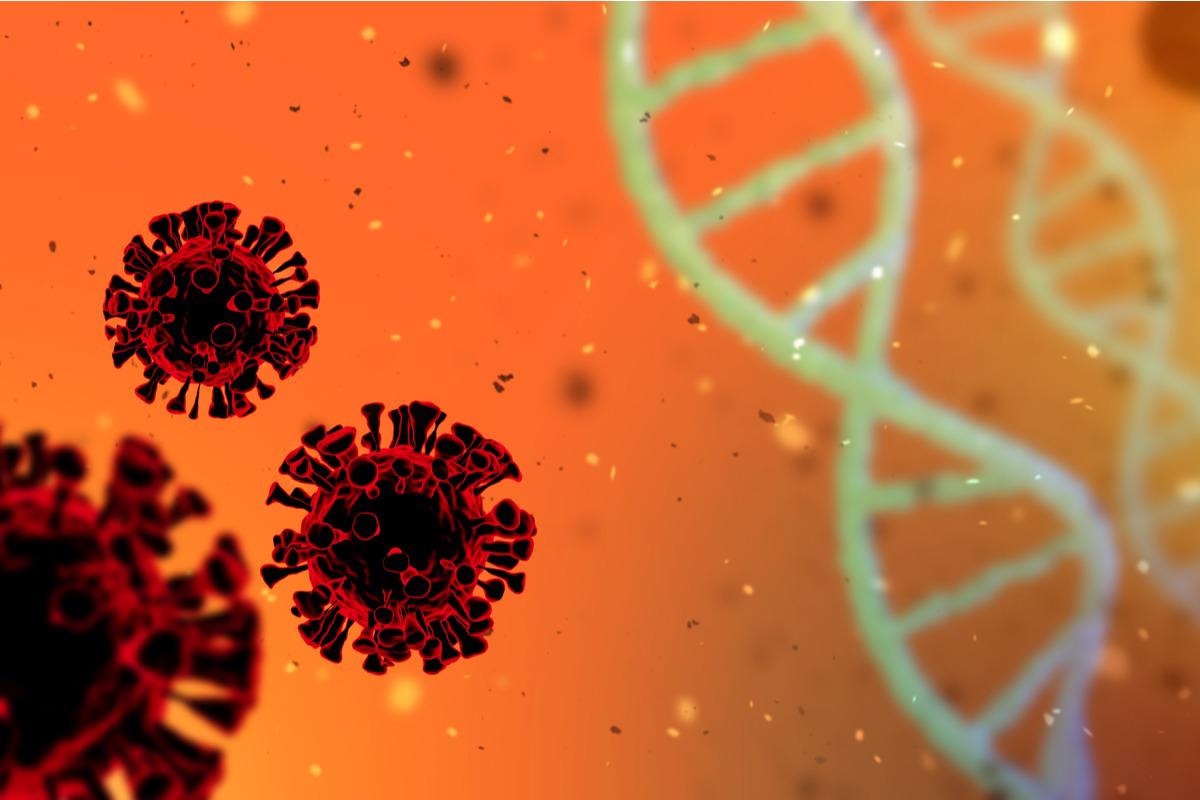In a recent study posted to the bioRxiv* preprint server, whole messenger RNA (mRNA)-seq was used to investigate the global effects of severe acute respiratory syndrome coronavirus 2 (SARS-CoV-2) viral genes Nsp6, Nsp8, and M on the transcriptome of human pluripotent stem cell-derived cardiomyocytes (hPSC-CMs).
 Study: SARS-CoV-2 Viral Genes Compromise Survival and Functions of Human Pluripotent Stem Cell-derived Cardiomyocytes via Reducing Cellular ATP Level. Image Credit: FOTOGRIN/Shutterstock
Study: SARS-CoV-2 Viral Genes Compromise Survival and Functions of Human Pluripotent Stem Cell-derived Cardiomyocytes via Reducing Cellular ATP Level. Image Credit: FOTOGRIN/Shutterstock
Low adenosine triphosphate (ATP) levels can affect intracellular Ca2+ signaling and cardiomyocytes (CM) contractility. Researchers subsequently tried pharmacological techniques to increase the cellular ATP levels of hPSC-CMs overexpressing Nsp6, Nsp8, or M.
Cardiac symptoms are prevalent in coronavirus disease 2019 (COVID-19) patients, and they play a significant role in total mortality. SARS-CoV-2 can infect the human myocardium, and hPSC-CMs are susceptible to infection.
The study
In the present study, researchers overexpressed three SARS-CoV-2 genes – Nsp6, Nsp8, and M – in hPSC-derived CMs. They cultured human embryonic stem cell (hESC) line H9 and human-induced PSC (hiPSC) line S3 in mTesR1 102 medium and differentiated cardiomyocytes. Whole mRNA-sequencing was used to evaluate total RNA for quality and quantity.
The researchers sequenced pooled cDNA libraries and generated approximately 30-40M 118 reads per library. Co-immunoprecipitation mass spectrometry (Co-IP-MS) was performed on the total cell proteins extracted, and Western blotting was used to analyze Co-IP protein samples.
Data comparison between the gene overexpression and control groups was conducted with the help of an unpaired two-tailed t-test.
Results
The study findings show that ATP hemostasis impairment may play a key role in SARS-CoV-2 gene-induced CM damage in the heart and other organs/tissues that are SARS-CoV-2 targets. Notably, while both Nsp6OE, Nsp8OE, and MOE infection and SARS-CoV-2 infection resulted in concordant transcriptomic changes in hPSC-CMs, SARS-CoV-2 infection was responsible for 70% of differential expression genes (DEGs), implying that the other SARS-CoV-2 genes may also influence the transcriptome of human CMs through different targets or mechanisms.
As SARS-CoV-2 virus-induced pathways were linked to apoptosis, gene transcription, and several metabolic processes, the findings suggest that at least some other SARS-CoV-2 genes may contribute to CM damage and impact the metabolism of human CMs.
The vulnerability of hPSC-CMs to individual SARS-CoV-2 genes was determined in this investigation. Nsp6 and Nsp8 are the SARS-CoV-2 non-structural proteins. M, the amplest structural protein in the viral particle, is the structural protein of SARS-CoV-2.
The researchers discovered that forcing Nsp6, Nsp8, or M expression was enough to cause apoptosis and dysfunction in hPSC-CMs, which phenocopied SARS-CoV-2 infected hPSC-CMs from prior studies. The whole mRNA-seq demonstrated global transcriptional alterations of Nsp6OE, Nsp8OE, and MOE human embryonic stem cell (hESC)-CMs compared to control hESC-CMs, especially with differentially expressed genes enriched in activated cellular damage and immunological responses, as well as reduced calcium/gap junction signaling. These findings suggest that exogenous SARS-CoV-2 viral genes could significantly affect the gene expression patterns of human CMs, potentially leading to CM abnormalities in patients with COVID-19.
The researchers discovered that Nsp6, Nsp8, and M interacted with ATPase subunits and affected the cellular ATP level in hPSC-derived CMs by examining their interactome in hESC-CMs. The study findings point to ATP homeostasis playing a key role in SARS-CoV-2-induced tissue damage in CMs and other SARS-CoV-2-sensitive tissue cells in the lung and kidney, while the mechanisms by which Nsp6, Nsp8, or M could hijack ATPase are still unknown.
Heart muscle cells consume a lot of energy due to their constant contractions, making them one of the most sensitive cell types to a lack of ATP supply. Consequently, the researchers examined pharmaceutical techniques to increase cellular ATP levels and revealed that two Food and Drug Administration (FDA)-approved medications, ivermectin, and meclizine, greatly decreased SARS-CoV-2 gene-induced electrical dysfunctions and cell death in human CMs.
Despite the fact that ivermectin is used to treat parasitic infections, it has been discovered to be a mitochondrial ATP protector in CMs and boost mitochondrial ATP generation in human CMs, which was confirmed in this investigation. Meclizine may raise ATP levels in hPSC-CMs, preventing cell death caused by the SARS-CoV-2 gene.
Conclusion
Overall, the researchers identified the global negative effects of SARS-CoV-2 genes Nsp6, Nsp8, and M on the entire transcriptome and interactome of hPSC-CMs, defined the critical role of ATP level reduction caused by SARS-CoV-2 genes in CM death and functional abnormalities, and investigated potential pharmaceutical approaches to alleviate SARS-CoV-2 genes-induced CM injury and abnormalities.
Global interactome analysis finds Nsp6, Nsp8, and M all interact with ATPase subunits, leading to significantly reduced cellular ATP level of hPSC-CMs.”
*Important notice
bioRxiv publishes preliminary scientific reports that are not peer-reviewed and, therefore, should not be regarded as conclusive, guide clinical practice/health-related behavior, or treated as established information.
Liu, J. et al. (2022) "SARS-CoV-2 Viral Genes Compromise Survival and Functions of Human Pluripotent Stem Cell-derived Cardiomyocytes via Reducing Cellular ATP Level". bioRxiv. doi: 10.1101/2022.01.20.477147. https://www.biorxiv.org/content/10.1101/2022.01.20.477147v1
Posted in: Medical Science News | Medical Research News | Disease/Infection News
Tags: Adenosine, Adenosine Triphosphate, Apoptosis, Calcium, Cell, Cell Death, Contractions, Coronavirus, Coronavirus Disease COVID-19, covid-19, Embryonic Stem Cell, Food, Gene, Gene Expression, Genes, Heart, Hemostasis, Immunoprecipitation, Interactome, Intracellular, Ivermectin, Kidney, Mass Spectrometry, Metabolism, Mortality, Muscle, Protein, Respiratory, RNA, SARS, SARS-CoV-2, Severe Acute Respiratory, Severe Acute Respiratory Syndrome, Spectrometry, Structural Protein, Syndrome, Transcription, Virus

Written by
Saurabh Chaturvedi
Saurabh Chaturvedi is a freelance writer from Jaipur, India. He is a gold medalist in Masters in Pharmaceutical Chemistry and has extensive experience in medical writing. He is passionate about reading and enjoys watching sci-fi movies.
Source: Read Full Article
